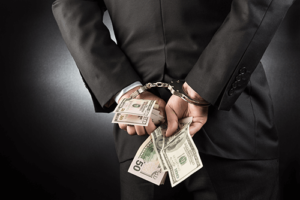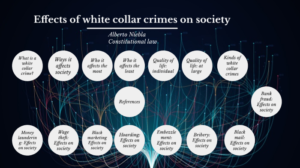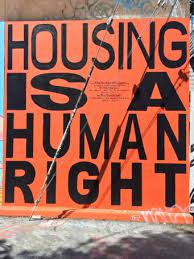Introduction:
White-collar crimes represent a pervasive threat to the stability and integrity of the American economy. Unlike street crimes that involve violence or theft, white-collar crimes typically occur within the realm of business and government, perpetrated by individuals or organizations with access to significant resources and influence. From embezzlement and insider trading to corporate fraud and tax evasion, these illicit activities undermine trust in financial institutions, distort market dynamics, and impose substantial economic costs. This essay delves into the multifaceted impact of white-collar crimes on the American economy, exploring their various manifestations, underlying causes, and consequential effects.
Understanding White-Collar Crimes:
White-collar crimes encompass a wide range of illegal activities committed by individuals in positions of authority or trust, often for financial gain. Examples include corporate fraud, bribery, money laundering, securities fraud, and intellectual property theft. While these crimes may not involve physical violence, their ramifications can be far-reaching, affecting not only businesses and investors but also consumers and taxpayers. Perpetrators of white-collar crimes may include executives, employees, politicians, and even professionals like lawyers and accountants who abuse their positions for personal enrichment.
Impact on Economic Stability:
The prevalence of white-collar crimes poses a significant threat to economic stability by eroding investor confidence and disrupting market mechanisms. Instances of corporate fraud or accounting manipulation can lead to stock market crashes and financial crises, as witnessed in scandals such as Enron and WorldCom. The resulting loss of investments and retirement savings can devastate individuals’ financial security and dampen consumer spending, there by hindering economic growth. Moreover, the perception of an unfair playing field, where well-connected insiders exploit loopholes and evade consequences, undermines the trust essential for robust market functioning.
Distortion of Market Dynamics:
White-collar crimes distort market dynamics by creating artificial imbalances and misallocating resources. Insider trading, for instance, allows privileged individuals to profit unfairly from non-public information, distorting stock prices and disadvantaging ordinary investors. Similarly, anticompetitive practices like price-fixing or collusion artificially inflate prices, limiting consumer choice and hindering innovation. Moreover, fraudulent investmnt schemes divert capital away from productive ventures, stifling entrepreneurship and impeding economic development. These distortions not only undermine the efficiency of markets but also erode public trust in their fairness and integrity.
Loss of Revenue and Tax Evasion:
One of the most significant impacts of white-collar crimes on the American economy is the loss of revenue resulting from tax evasion and illicit financial activities. By underreporting income, exploiting offshore tax havens, or engaging in fraudulent accounting practices, individuals and corporations evade their tax obligations, depriving the government of vital resources for public services and infrastructure. The Tax Justice Network estimates that trillions of dollars are stashed away in offshore accounts, exacerbating income inequality and depriving society of funds for education, healthcare, and social welfare programs. Moreover, the burden of taxation falls disproportionately on honest taxpayers, exacerbating social divisions and eroding trust in the fairness of the tax system.
Undermining Regulatory Integrity:
White-collar crimes also undermine the effectiveness of regulatory frameworks designed to safeguard the economy and protect consumers. Regulatory capture, where industry insiders exert undue influence over regulatory agencies, can result in lax enforcement and inadequate oversight, enabling fraudulent practices to proliferate unchecked. The revolving door phenomenon, whereby regulators transition to lucrative positions in the industries they once regulated, raises concerns about conflicts of interest and regulatory capture. Additionally, the complexity of financial instruments and transactions can outpace regulatory capabilities, creating loopholes and opportunities for exploitation by sophisticated actors. These systemic weaknesses not only facilitate white-collar crimes but also erode public trust in the regulatory institutions tasked with safeguarding the economy.
Costs of Enforcement and Prosecution:
Effectively combating white-collar crimes imposes substantial costs on law enforcement agencies, regulatory bodies, and the judicial system. Investigations into complex financial schemes require specialized expertise and resources, stretching the capacities of enforcement agencies and diverting attention from other priorities. Moreover, prosecuting white-collar criminals can be challenging due to legal complexities, resource constraints, and the influence wielded by well-funded defense teams. High-profile cases often involve protracted legal battles and hefty fines, further straining public resources and delaying justice. Despite the significant costs involved, the deterrent effect of enforcement efforts remains uncertain, as lenient sentences and regulatory loopholes may undermine the effectiveness of punitive measures.
Preventive Measures and Enforcement Strategies:
Addressing the impact of white-collar crimes requires a multifaceted approach that encompasses both preventive measures and robust enforcement strategies. At the regulatory level, policymakers must enact laws and regulations that deter misconduct, promote transparency, and hold perpetrators accountable for their actions. This may involve strengthening corporate governance standards, enhancing regulatory oversight, and imposing stricter penalties for violations of securities laws or accounting standards. Moreover, regulatory agencies such as the Securities and Exchange Commission (SEC) and the Department of Justice (DOJ) play a crucial role in investigating and prosecuting white-collar offenses, thereby deterring future misconduct and safeguarding the integrity of financial markets.
Furthermore, businesses and organizations must prioritize ethics, integrity, and compliance as core values within their corporate culture. This requires implementing internal controls, whistleblower protections, and ethical training programs to detect and prevent fraudulent behavior. Moreover, fostering a culture of transparency and accountability can help promote ethical decision-making and discourage employees from engaging in misconduct. Similarly, external stakeholders, including investors, consumers, and advocacy groups, can exert pressure on companies to adopt responsible business practices and disclose relevant information to the public.
Conclusion:
White-collar crimes represent a pervasive and insidious threat to the American economy, undermining trust in financial institutions, distorting market dynamics, and imposing substantial economic costs. From corporate fraud and tax evasion to insider trading and regulatory capture, these illicit activities erode the integrity of the economic system, exacerbate inequality, and hinder sustainable growth. Effectively addressing the root causes of white-collar crimes requires a multifaceted approach encompassing robust regulatory oversight, enhanced transparency, and accountability measures. By promoting ethical conduct, strengthening enforcement mechanisms, and fostering a culture of integrity, society can mitigate the adverse impacts of white-collar crimes and safeguard the economy for future generations.





